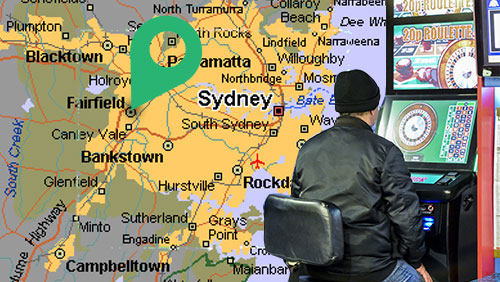In spite of zealous enthusiasm by the New South Wales (NSW) government, the reported caps placed on gaming machines are being blasted by gambling opponents.
 Problem gambling, according to critics, is at an all-time high, and the caps do little to bring things under control. The critics claim that there are “more machines than the whole of Tasmania,” and that the new rules don’t go far enough in lowering the statistics.
Problem gambling, according to critics, is at an all-time high, and the caps do little to bring things under control. The critics claim that there are “more machines than the whole of Tasmania,” and that the new rules don’t go far enough in lowering the statistics.
Under the new regulations, Fairfield, a popular migrant area, will be what the government calls a “no-go” zone for pokies. Fairfield falls under the jurisdiction of the western Sydney council, and last year saw more than US$6.2 million gambled in machines. Gaming machines, or “pokies” to the locals, will be capped at the current levels.
NWS Minister for Racing Paul Toole was quoted by SBS News saying that the controls, introduced to parliament Tuesday, were “the most significant changes to gambling regulation in NSW for a decade,” noting that “these reforms follow extensive consultation and represent a reset of the way gambling is regulated in NSW.” Communities that have been signaled as “high risk” areas will be off-limits for the installation of additional pokies.
Australia’s Alliance for Gambling Reform (AGR) disagreed. It said that the measures were only a smoke screen and that they wouldn’t protect anyone. A recent investigation discovered that pokie clubs brought in millions of dollars, most of which was pocketed by executives who used the money to cover lavish lifestyles. This, according to AGR, was the reason why the industry needed to be more strictly regulated.
“We welcome the cap on machine numbers in the worst affected areas, but really these areas need machine numbers massively reduced. Councils like Fairfield already have more machines than the whole of Tasmania,” AGR NSW spokesperson and deputy chair Allison Keogh said in a statement, noting that more than half of the residents of Fairfield were born overseas and over 70% don’t speak English as their primary language.
Keogh added that the caps were offset by other provisions afforded the gambling industry, including an easing of restrictions that allows pokie clubs to create chains of venues. This was seconded by Fairfield Mayor Frank Carbone, who said that smaller sites now have the ability to lease unused machines to other local clubs. This, he argued, means that ultimately there is no reduction in the gaming machines.
In defense of the measures, Toole said that they create a balance between the needs of the industry and the desires of the community. He backed up his defense by saying that operators will see an increase in fines of up to 10 times higher than before if they are found to be illegally incentivizing players to gamble.
“From today, the number of poker machines in Fairfield, for example, will be capped,” Toole said. “It can go no higher.”